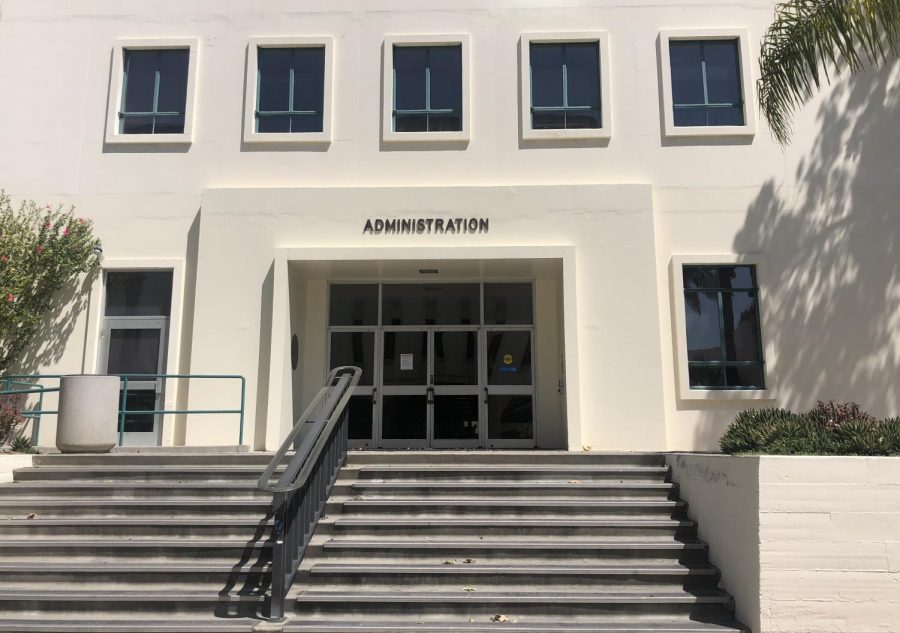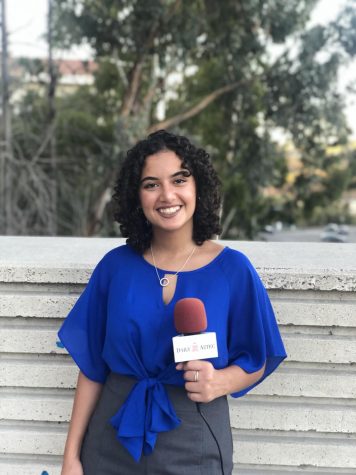San Diego State’s Hispanic Serving Institution Task Force held a Virtual Town Hall on April 22 to discuss the initiatives recommended by the task force and how they will be implemented at the university.
Dr. Roberto Hernandez, who was recently appointed as the task force chair, led the discussion. He said the task force was created to better inform the university about the current state of affairs in SDSU’s Hispanic community and to create a plan of action to allow the university to fully embrace its status as a Hispanic-serving institution.
Hernandez said the task force was broken into three subcommittees which covered representation and engagement, employee relations and funding. Each committee conducted its own research into the campus community to determine how the university could better serve the Hispanic population. Their research and findings were presented during the town hall meeting.
Hernandez said a study conducted by the Representation and Community Engagement subcommittee found that Hispanic faculty and staff were in need of more support from the university.
“Part of the finding of this subcommittee noted that there was a sense of a lack of support for and information on Latinx issues,” he said. “Ultimately, this pointed to a need to centralize Latinx community initiatives and efforts.”
Hernandez added that the Climate, Retention and Graduation subcommittee also conducted its own study through meetings and focus groups with students, staff and faculty. He said participants of the study reported a serious “cultural tax,” or expectation to be a part of the “diversity team,” which means staff and faculty are being given extra work in order to represent diversity at the university but are not necessarily feeling the benefits of this added burden.
The subcommittee also noted a lack of recognition and respect for publications written in Spanish, or any language other than English, and need for greater recruitment, retention, membership and a stronger promotion pipeline.
Hernandez said The Grants and External Funding committee also conducted an analysis of the SDSU Research Foundation data to see how many faculty had tried to obtain Hispanic serving institution-specific grants and funding since 2015. This committee recommended stronger efforts to gain access to the research funds made available to the institutions that are designated by the Department of Education to serve students from a Hispanic background.
“This committee found that SDSU should provide more grant gaining training specifically exploring tactics to leverage our (Hispanic serving institution) identity,” he said.
The Department of Education first recognized SDSU as a Hispanic serving institution in 2012 after the number of Latinx undergraduates enrolled at the university rose above 25%.
Hernandez said the findings from the committees resulted in six clear recommendations:
- Expanded support for employee resource groups
- Clear communication of Hispanic-serving-institution identity
- Professional learning on Latinx issues
- Enhanced recruitment and retention efforts for Latinx faculty and staff
- Leverage accessible Hispanic-serving-institution research funds
- Leadership in Meso-American and transborder studies
Hernandez further outlined the university’s plan of action moving forward, which included increased community engagement along with the committee’s six recommendations.
“We will also be doing a better job engaging alumni and community partners, working closely with the Director of the Latinx Resource Center Yesenia Sanchez Garcia, interfacing with the San Diego Chicano/Latino Concillo for Higher Education, engaging with other (Hispanic serving institution) campuses in our area and, lastly, continue working toward earning our Excelencia SEAL of excellence,” he said.
Diversity Officer Nicole Belisle and President Adela de La Torre’s Chief of Staff Brittany Santos-Derieg joined the virtual town hall to answer questions from attendees.
Santos-Derieg said the recommendations are either already implemented within the university or will be soon.
“Some of the recommendations were able to be implemented as the group was moving forward,” Santos-Derieg said. “A number of them were simply about bringing together resources and ensuring our identity as a (Hispanic serving institution) was integrated into our strategic plan. For the more forward-looking recommendations, many of them aligned with the strategic plan itself.”
Santos-Derieg said the university’s strategic plan has been delivered to Associated Students and the University Senate and will be put into place in May.








